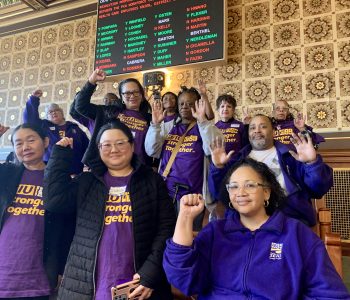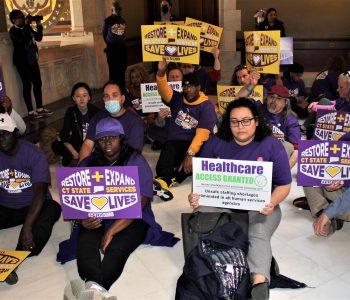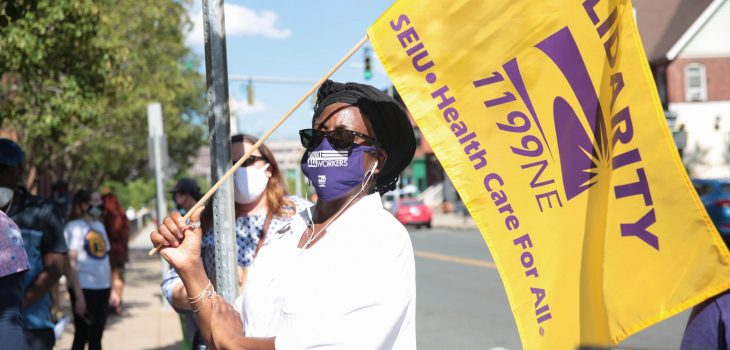 Featured Post
Featured Post
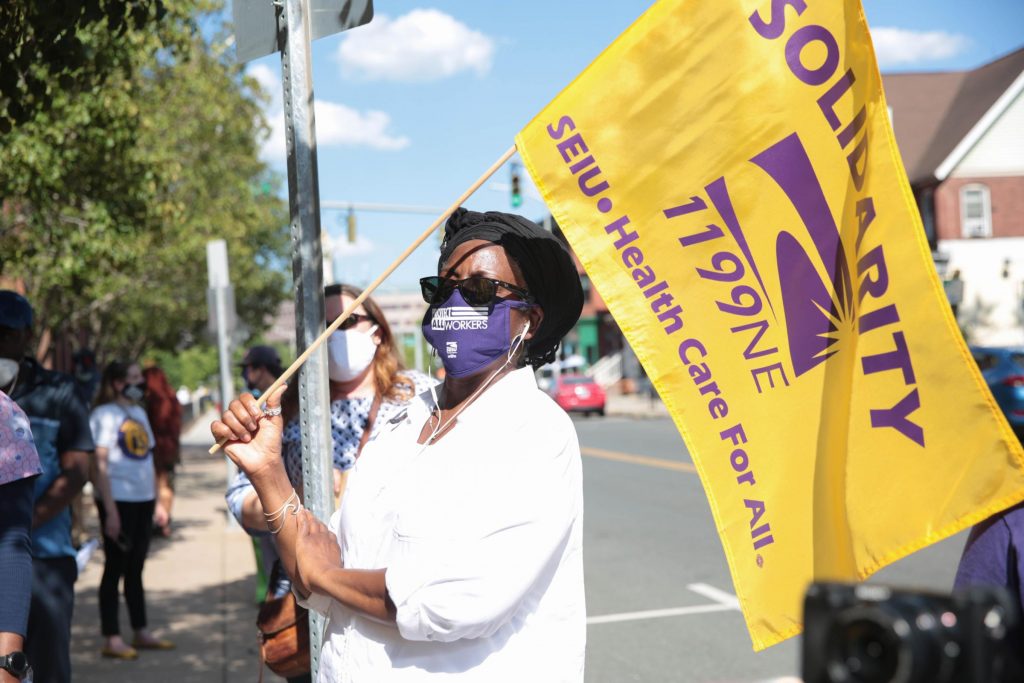
NICOLE LEONARD / CONNECTICUT PUBLIC RADIO
Luz Morales was working as a certified nursing assistant at RegalCare at Waterbury, a nursing home, when she fell ill with COVID-19.
At home, her 70-year-old mother, Nicia, looked in on her.
“I could see the concern in her soft brown eyes,” Morales recalls. “‘Como te sientes?’ she asked me. ‘Un poquito mejor,’ I answer. Every so often, she’s at my door checking on me, asking how I’m feeling.”
Morales read an excerpt from “The Clouds Are Lifting,” a story she wrote for Care Under COVID. The new book, published in December, documents the physical, mental and emotional experiences of nearly 20 long-term care and home health workers serving on the front lines of the pandemic.
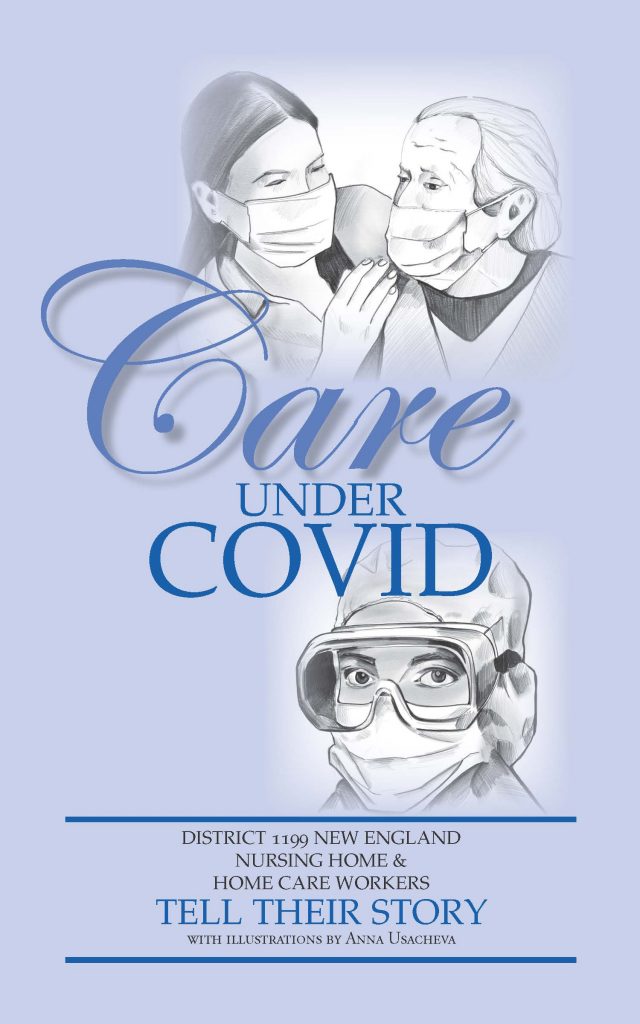
CREDIT PROVIDED BY / NEW ENGLAND HEALTH CARE EMPLOYEES UNION, DISTRICT 1199 SEIU
The authors are members of the New England Health Care Employees Union, District 1199NE SEIU.
“I lay in my bed, propped up on the pillows. It helps with the nausea,” Morales read aloud. “I survive on ginger ale and orange juice for four days. There was no appetite. The isolation is crushing.”
The long-term care industry has been hit particularly hard throughout the pandemic. In nursing homes alone, there have been 3,538 resident deaths and 3,379 cases among staff, according to state data updated Thursday.
Steve Bender, executive director of the union’s Training and Upgrade Fund, said the purpose of the book is to raise awareness about the conditions and issues that workers continue to face in their roles as caregivers.
“It’s absolutely also important that policymakers, politicians, other community leaders read these stories,” he said, “and have a deeper understanding of the day-to-day lives and the challenges and the courage that these workers are showing on such a regular basis in the hopes that they will get the respect and dignity and financial resources that are so deserved.”
Union members participated in writer’s workshops in late spring. They were virtual and led by Tim Sheard, executive editor and founder of Hard Ball Press. He’s also a retired nurse who worked in the health care field for more than 40 years.
“Often in the workshops, the worker would be overcome with emotion and could not go on, because the feelings were so intense, feelings of sorrow, feelings of anger, feelings of fear,” he said. “Some of them were quite angry at the way they were treated, with good reason, and wanted to express that.”

CREDIT PROVIDED BY / NEW ENGLAND HEALTH CARE EMPLOYEES UNION, DISTRICT 1199 SEIU
Beckford wrote about a confrontation she had with an administrator on the last day she worked before becoming ill with COVID-19.
“She kept trying to calm me down, stating how she understood that I was upset, but there was a shortage of PPE in the whole country,” Beckford wrote. “I backed up a bit and replied, ‘Upset? Upset?! I am not upset, I just don’t want to die!’ I was trying very hard to hold back my tears as my voice began to crack.”
Reliving the experience and recalling the fallout of her illness was a difficult process, she said.
“I found myself going into a great depression, and for me as a Jamaican, it’s not something we really like to discuss any kind of weakness to show to the public,” Beckford said. “My kids consider me to be Wonder Woman, so for me to have to feel some kind of weakness like this, it was really hard.”
For Claire Martin, a personal care attendant in Middletown, the project was cathartic.
“I had to come to terms with all those feelings, so it actually did help a lot to write it down,” she said, “and now I feel like I’ve taken that part of my life and put it somewhere, and I can move on.”
Long-term care workers and residents are a priority group for COVID-19 vaccination. Even so, union representatives like Suzanne Clark, secretary treasurer, said the industry needs long-overdue changes and better infrastructure support that will last beyond the pandemic.
“I hear a lot of people talking about going back to normal,” she said. “But every home care personal attendant, every group home worker, every nursing home worker will tell you, in the long-term care industry, going back to normal is not acceptable.”
“Care Under COVID” can be purchased for $10 by emailing Book@1199trainingfund.org.


